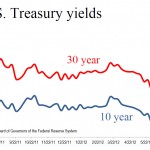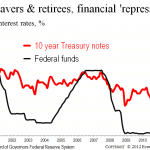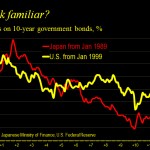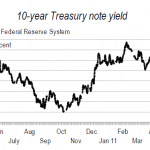
Interest rates on U.S. Treasury notes with a maturity of 10 years fell last month to nearly the lowest since World War II. They may go lower still. Today’s low rates reflect both the weak outlook for most advanced economies and a desperate scramble globally for safe places to park [continue reading . . . ]


